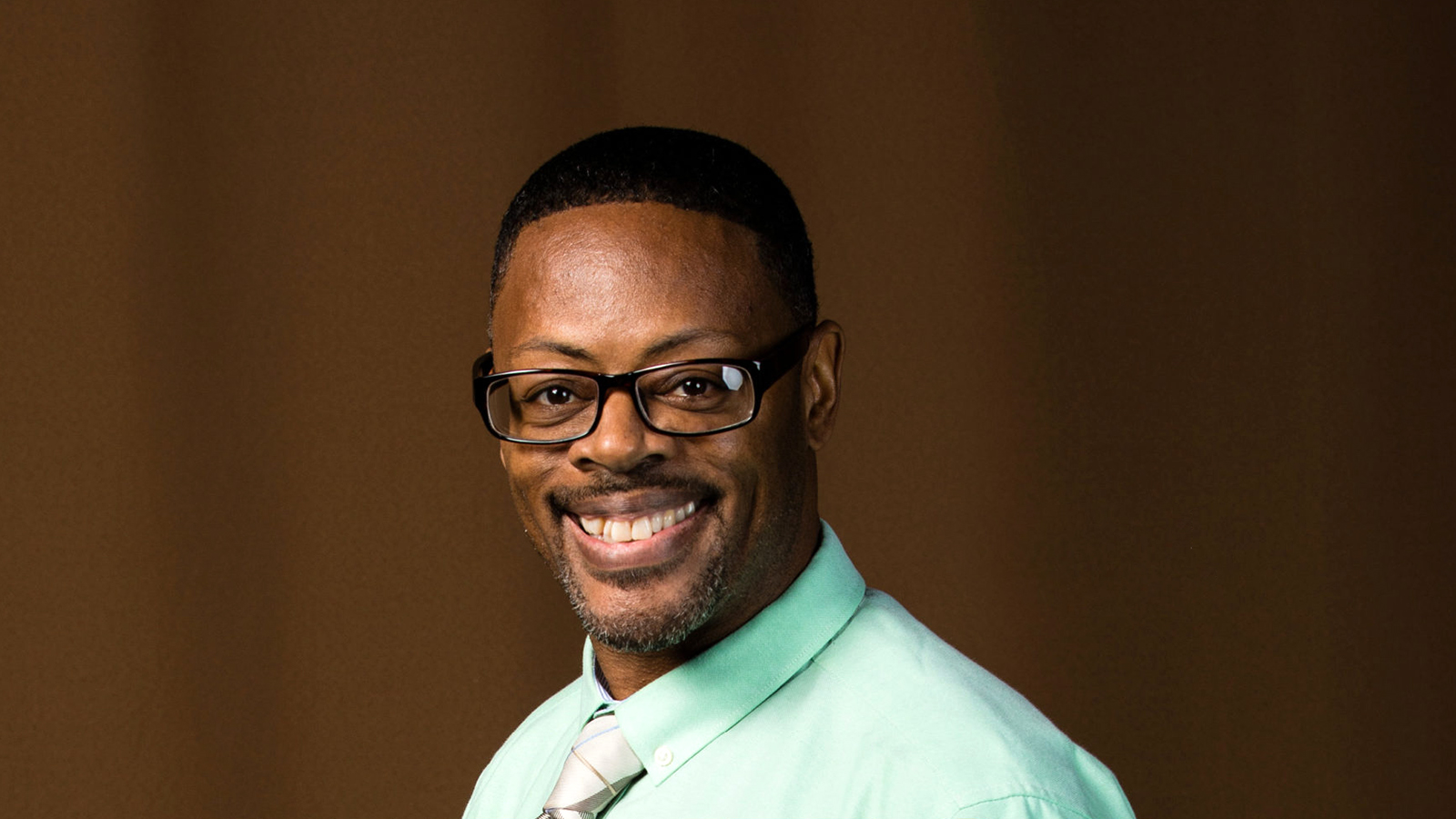
Nebraska serves as foundation for Byron Ross’s speech-language pathology career in higher education
24 May 2022 By Kelcey Buck
To say an American Sign Language course Byron Ross took as an undergraduate psychology major altered his career path would be an understatement. Ross was a senior at the University of Central Arkansas when his instructor for the course invited him to observe a speech therapy session at the campus speech-language pathology clinic.
“I observed the graduate students and the clients, who were having so much fun and asked, ‘You actually get paid to do that?’” said Ross, now an instructional associate professor and post-baccalaureate leveling program director at the University of Houston. “I changed my major to speech pathology the following Tuesday.”
Ross went on to earn both his bachelor’s and master’s degrees in speech-language pathology at Central Arkansas. Then came another turning point in his career.
“After finishing graduate school, I was asked to stay at the University of Central Arkansas to teach sign language while I worked on my clinical fellowship year in a local public school. I enjoyed teaching so much, I decided I wanted to make a career out of it.”
Ross ended up at the University of Nebraska-Lincoln for his Ph.D. in Human Sciences thanks in large part to the late Dave Beukelman. Ross was interested in pursuing a specialty in Augmentative and Alternative Communication (AAC) and the book for his graduate AAC course had been co-authored by Beukelman. Eventually Ross had the opportunity to visit Lincoln, where he met Beukelman and associate professor Cynthia Cress.
“I had thought it would be awesome to study with Dr. Beukelman if I had the opportunity. After meeting Dave, I was also introduced to Cynthia Cress and once everyone agreed I was a good match, it was a go!”
After earning his doctorate at Nebraska in 2003, Ross returned to his Central Arkansas as an assistant professor for eight years before moving to the University of Houston in 2011.
“UNL provided me the foundation I needed to grow and develop my teaching, scholarship and service skills in order to be successful in academia,” Ross said. “I had the best mentors – Dave Beukelman, Cynthia Cress, Ellen Siegel, and John Bernthal – who taught me how to conduct research, command a classroom, give professional presentations, and be a professional in general.”
Today, Ross teaches a variety of courses in Houston’s Communication Sciences and Disorders department. His clinical interests include working with infants/toddlers and preschoolers with language delays and disorders, particularly late talkers. He says the most rewarding aspect of speech-language pathology is forming relationships with those children and teaming up with their families.
“I have the best of both worlds – I get to teach and train the next generation of speech pathologists, while also being able to work in the clinic with the clients and their families. I also work with some awesome colleagues that I learn from every day.”
In addition to working with young children, Ross also enjoys helping adolescents with autism spectrum disorder (ASD) who have a variety of social communication challenges. At Houston he established a peer-mentoring program for UH college students with ASD.
“Serving on the Advisory Board for the Center for Students with Disabilities allowed me the opportunity to understand the needs of students on campus with ASD,” Ross said. “After mentoring students individually, the word started to spread on campus that I was doing the mentoring and it got to the point where there were too many students requesting the service.”
In order to meet the demand and the needs of students requesting services, Ross came up with the peer mentoring idea. The program pairs an undergraduate student mentor, usually someone involved with the National Student Speech-Language-Hearing Association (NSSLHA) with a student with ASD to provide additional support in three primary areas: organization, social life, and personal responsibility.
Now in his third decade in speech-language pathology, Ross encourages students interested in the profession to take advantage of as many learning opportunities as possible.
“Learn as much as you can about the field and participate in activities that will allow you to observe SLPs in action, such as shadowing and volunteering. Also, don’t put pressure on yourself to have to decide on a specialty area or a certain population. Enjoy the classroom and clinical experiences, and have an open mind.”
Special Education and Communication Disorders